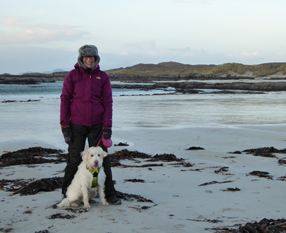
One of the hardest areas for managers to deal with is handling absences and even more so when the absence is because of stress, anxiety or depression; hardest hit for mental health issues are the 30-40-year olds according to analysis from the Centre of Economic and Business Research. And yet we know these types of absences are occurring more frequently across all sectors and all sizes of business, and for managers and business owners, absence impacts business productivity and profit levels. Workplace absence is costing the UK economy £18billion in lost productivity.
Last week mental health issues became a focus because it was World Mental Health day as was highlighted by the trends on social media. I think such a focus can really help to emphasise the huge impact mental health issues has but I want to focus on what we can all do about this. What can employers do and what can colleagues do to help foster a more positive healthy work environment, that will ultimately, help to keep us all more physically and mentally healthy? Here are a few strategies for us all to try no matter how big or small our workplaces.
Firstly, we know that work is good for us – it might not feel like that getting up on a dark, October Monday morning when it’s dreich outside and our enthusiasm for month-end accounts or a 3-hour management team meeting awaits our arrival at work! Much research has been done on this and the Royal College of Psychiatrists cites the following good things about working:
- Social contacts and support
- A way of structuring and occupying our time
- Physically and mental activity
- An opportunity to develop and use skills
- Social status
- A sense of identity and personal achievement and
- Money and other resources needed for material well-being.
Conversely the same source indicates that people who are out of work or “workless” have poorer physical and mental health overall, consult their GP more, are more likely to be admitted to hospital and have higher death rates.
So, when we are at work, our employers can make small changes which will also have a big impact on our physical and mental health. Examples include:
- Walking clubs, walking meetings/coaching sessions, and 24-hour counselling service for anyone suffering from stress and anxiety;
- Supporting staff to get involved with local charities, allowing time off to get involved in the community;
- Holding yoga or Pilates classes - you only need a small amount of space and YouTube or a DVD;
- Encouraging staff to take part in events such as CRUK’s Race for Life;
- Working with specific charities can also help staff overcome traumatic events for example, a children’s nursery in South Wales encouraged staff to undertake voluntary work with the British Heart Foundation to raise money and awareness of how to look after your heart after several employees lost family members to heart attacks. This not only helped staff to come to terms with their loss but also, they felt they were able to help others;
- There are technological solutions that organisations can try such as the Remente app which allows employees to chart their satisfaction with various aspects of their lives over time. The app asks users daily how they are feeling and how happy they are, and helps them set goals towards targets in life and work;
- Similar solutions can be tracked via several fitness trackers which log steps, sleep and can help individuals set healthy goals and help achieve weight loss;
- Allowing staff to work remotely or flexibly is proven to be good for morale and can take away added stress when there are care considerations for working parents or staff with elderly or disabled dependents;
- Signing up for healthy work initiatives such as the Bronze, Silver and Gold awards offered by NHS Scotland’s Healthy Working Lives award.
Small business owners also need to focus on their own mental health and personally I know I must keep physically and mentally fit and try to programme some form of exercise every day. Mostly this is a fast dog walk which helps me get my heart rate up in the morning, focus on the day ahead, I have time to look around me and take in the beautiful countryside and just feel good about the day. I hope that some of these ideas will resonate with you, many of which can be done for absolutely no charge; just a bit of time. Isn’t that what we all need? So, give yourself some time today to walk at lunch time, leave your desk for 10-15 minutes, download an app, put on some music and chill!
Let me know how you get on! I’d love to share it with others!
Caroline






